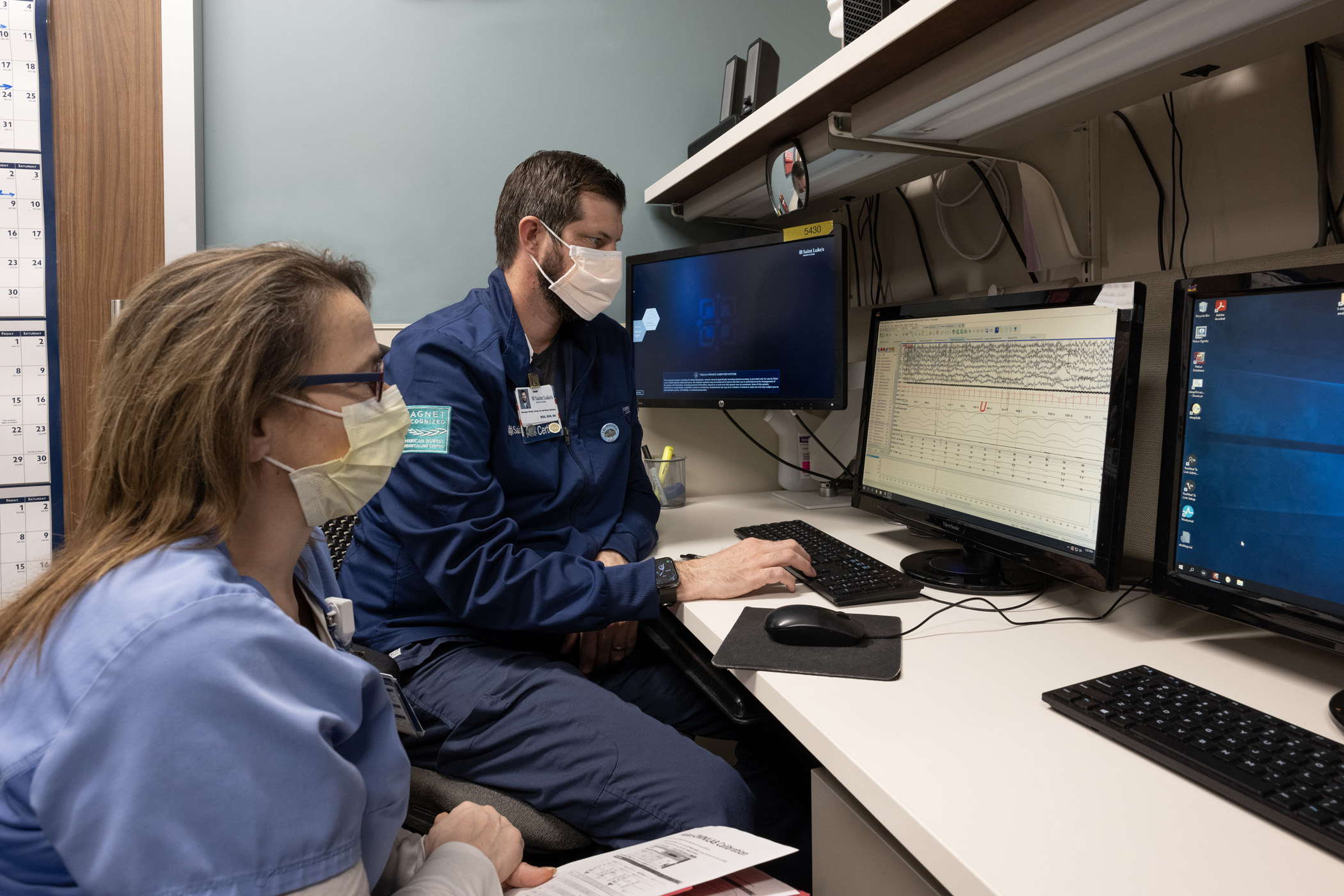Saint Luke's Research
Research has been the heart of Saint Luke’s for more than 135 years. Our teams strive to continuously improve the quality and value of health care as a national leader in clinical, translational, and outcomes research. Our mission is to advance the prevention and treatment of disease, helping patients live healthier and longer lives.
Saint Luke’s Office of Research Services provides a centralized, comprehensive, service-driven infrastructure that is the foundation for research growth at Saint Luke’s. We offer a wide array of resources and services to help investigators identify and access the information necessary to support their research and team members.

Clinical Trials
Clinical trials help move health care forward. We offer a wide range of clinical trials to help researchers gain new insights into a disease or evaluate the success of an investigational treatment.
Frequently Asked Questions
What is a clinical study?
A clinical study, also called a clinical trial, is an organized experiment performed on human participants to answer a specific scientific question. Clinical studies are done to:
- Determine the best way to treat, diagnose, or prevent a disease
- Answer questions about safety and effectiveness
- Evaluate whether clinicians are using the best treatments
- Help the U.S. Food and Drug Administration (FDA) determine whether to approve a treatment for general use
The information learned from clinical studies helps to improve the medical care for future patients.
What are the different types of clinical trials?
- Treatment trials: Test experimental treatments, new combinations of drugs, or new approaches to surgery or radiation therapy
- Prevention trials: Look for better ways to prevent disease in people who have never had the disease or to prevent a disease from returning
- Diagnostic trials: Find better tests or procedures for diagnosing a particular disease or condition
- Screening trials: Test the best way to detect certain diseases or health conditions
- Quality of life trials: Explore ways to improve comfort and the quality of life for individuals with a chronic illness
Why are clinical trials important?
The goal of clinical trials is to determine if these treatment, prevention, and behavior approaches are safe and effective. People take part in clinical trials for many reasons. Healthy volunteers may participate to help others and move health care forward. People with an illness or disease take part to help others, but also to possibly receive the newest treatment. Clinical trials offer hope for many people and are an opportunity to help researchers find better treatments.
Learn more about the basics of clinical trial from the Office for Human Research Protections (OHRP) and the National Institutes of Health.
Who does Saint Luke’s partner with?
Saint Luke’s Hospital of Kansas City is the primary affiliate teaching hospital for the University of Missouri–Kansas City School of Medicine (UMKC), a Carnegie R1 research institution. Together, we collaborate on several research initiatives and clinical trials, such as the Heart Outcomes in Pregnancy Expectations (HOPE) Study for Mom and Baby, which aims to better understand and combat maternal morbidity and mortality.
Human Research Protection Program
Saint Luke's Human Research Protection Program's mission is to protect the rights and welfare of individuals who participate in research conducted within Saint Luke's while advocating the advancement of scientific knowledge.
For Researchers and Clinicians
Saint Luke's Office of Research Services provides a centralized, comprehensive, service-driven infrastructure that is the foundation for research growth at Saint Luke’s.
Support Advanced Research
Donor generosity enables our health system to investigate, identify, and provide the safest, innovative technologies and state-of-the-art treatments.